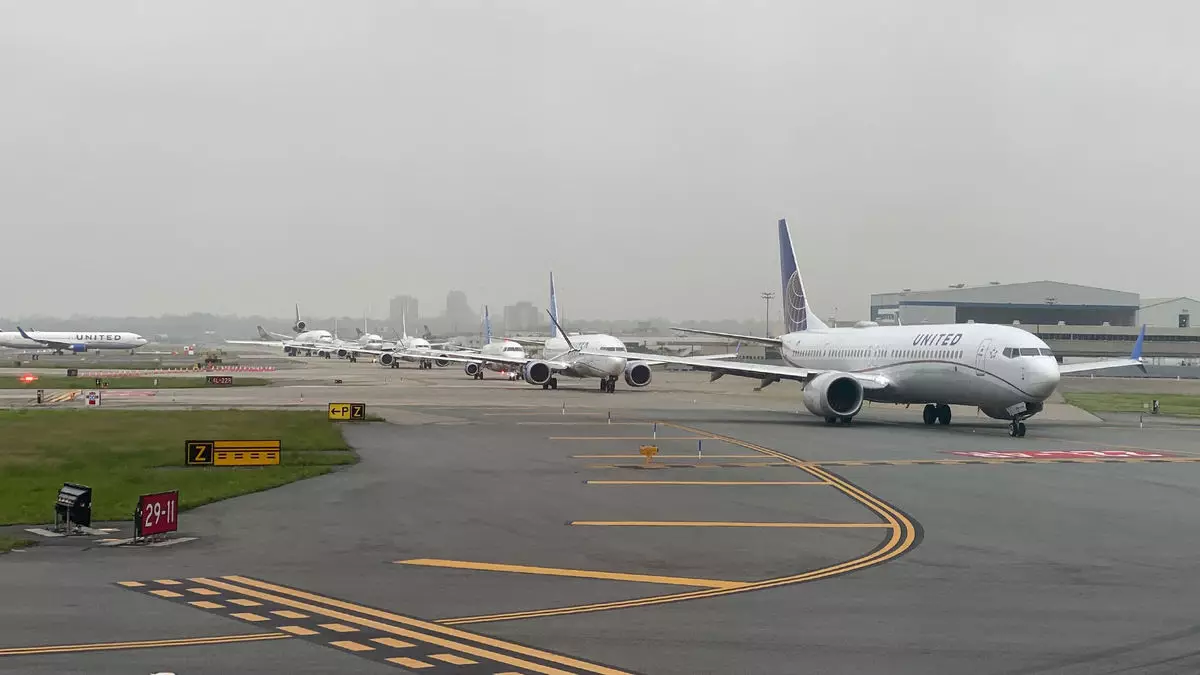Newark Airport has recently been in the spotlight for all the wrong reasons. Amidst numerous service disruptions, including flight cancellations and extended delays attributed to air traffic control shortcomings, travelers and travel advisors alike are facing an increasingly complicated landscape. The unfortunate reality is that these disruptions have not only affected passengers’ travel plans but also heightened anxiety around flight reliability. As travel specialists step up to assist their clients in navigating these frustrations, the need for adaptive decision-making becomes evident.
Travel adviser Rick Ardis, owner of Ardis Travel, epitomizes this adaptability. Scheduled to fly from Newark to attend the ASTA Travel Advisor Conference, he made the astute decision to reroute his journey through Lehigh Valley Airport to mitigate the risk of cancellation—an action that turned out to be a wise choice as United Airlines indeed axed the Newark-Denver flight he was originally booked on. Such anticipatory measures are becoming increasingly important for travel advisors as they field questions from concerned clients anxious about the current state of air travel.
Client Concerns and Informed Decision-Making
Parri Mahan, a travel advisor affiliated with Envoyage, reports a noticeable uptick in inquiries regarding Newark Airport’s reliability. The recent operational cutbacks and technological failures have left travelers scrambling for information on what could potentially disrupt their well-laid plans. In environments rife with uncertainty, travel advisors have become essential sources of both information and reassurance, helping clients weigh their options.
Despite the chaos, many passengers still prefer Newark for its perceived convenience compared to other airports such as LaGuardia and JFK. The sentiment is clear: the hassle of commuting through congested routes to alternative airports often outweighs the discomfort associated with Newark’s operational issues. Melissa Sanchez, a travel agency owner, voiced this sentiment by noting that while inconveniences exist, the reality of dealing with New Jersey traffic remains a daunting factor for travelers who might otherwise consider alternate routes.
Operational Adjustments and Their Implications
The situation at Newark Airport took a dramatic turn following an April 28 air traffic control outage, which led to chaos in the skies above New Jersey. United Airlines took decisive action with a schedule reduction, cutting down operations by 35 flights per day. The FAA’s intervention further imposed stringent caps on arrivals and departures, affecting the flow of air traffic. Travelers might find some solace in these measures, as they aim to create more manageable travel conditions; however, the reality is that many flights booked well in advance may still face the specter of cancellation.
The data reveals a critical trend: United Airlines’ reductions have primarily targeted domestic routes with multiple daily flights, offering some reprieve for those traveling internationally. Mahan underscores the importance of providing clients with relevant information to help them feel secure, particularly when flights to popular international destinations remain unaffected.
Travel Advisors as Proactive Problem Solvers
The role of travel advisors has never been more crucial. These professionals are not only answering questions but actively intervening on behalf of their clients. For instance, when a flight was canceled, Ardis expertly leveraged his industry knowledge to secure a more favorable arrangement for his client, including a nonstop flight and an upgraded cabin class. Such actions highlight the value of individualized service that travel advisors offer, particularly in turbulent times.
Other travel advisors have found themselves in similar situations, with agents reporting ongoing communication with clients contemplating alternate airports. The proactive approach of monitoring the evolving situation is key for many agencies as they strive to minimize the potential for inconvenience. Even as tensions rise, some clients are opting to shift their travel plans entirely rather than risk the unpredictability of travel through Newark, chasing the peace of mind that comes from exploring alternate airport options.
Navigating the Future of Air Travel
Ultimately, the tumultuous landscape surrounding Newark Airport serves as a learning experience for both travelers and advisors alike. As clients consider rescheduling or rerouting their travel plans, their trust in their advisors becomes paramount. The ongoing dialogue is one of resilience, adaptability, and support. While the immediate challenges may seem daunting, they also present opportunities for travel professionals to showcase their expertise and the value of informed planning.
In an environment where each travel decision carries weight, the influence of a trusted advisor can mean the difference between mere inconvenience and a transformational travel experience. The ongoing transformation in the way airports operate may lead to a new era of travel resilience, one where proactive engagement becomes the norm rather than the exception.


Leave a Reply